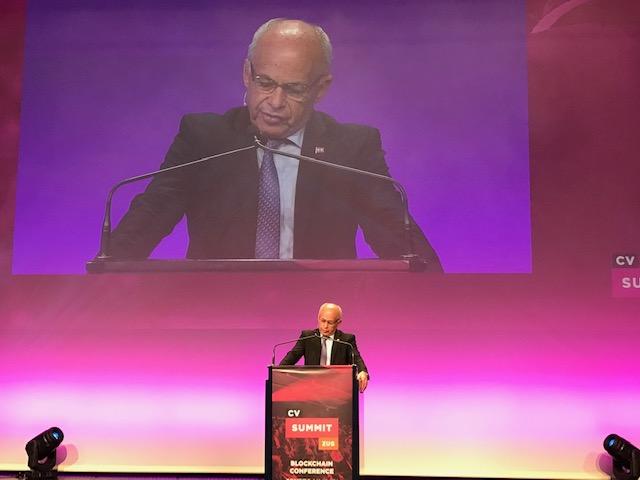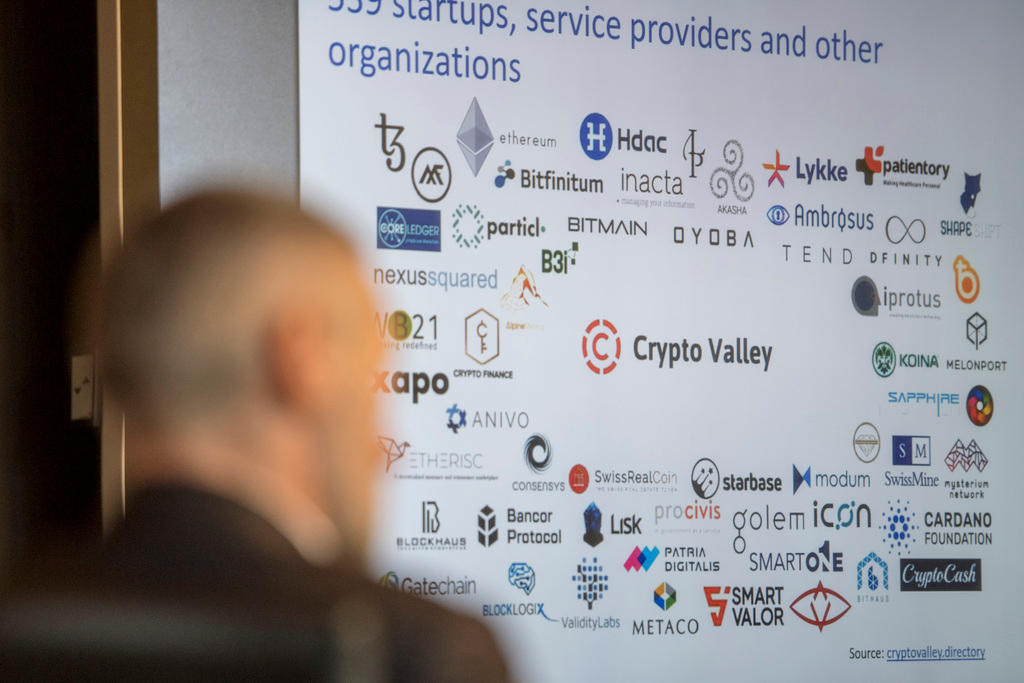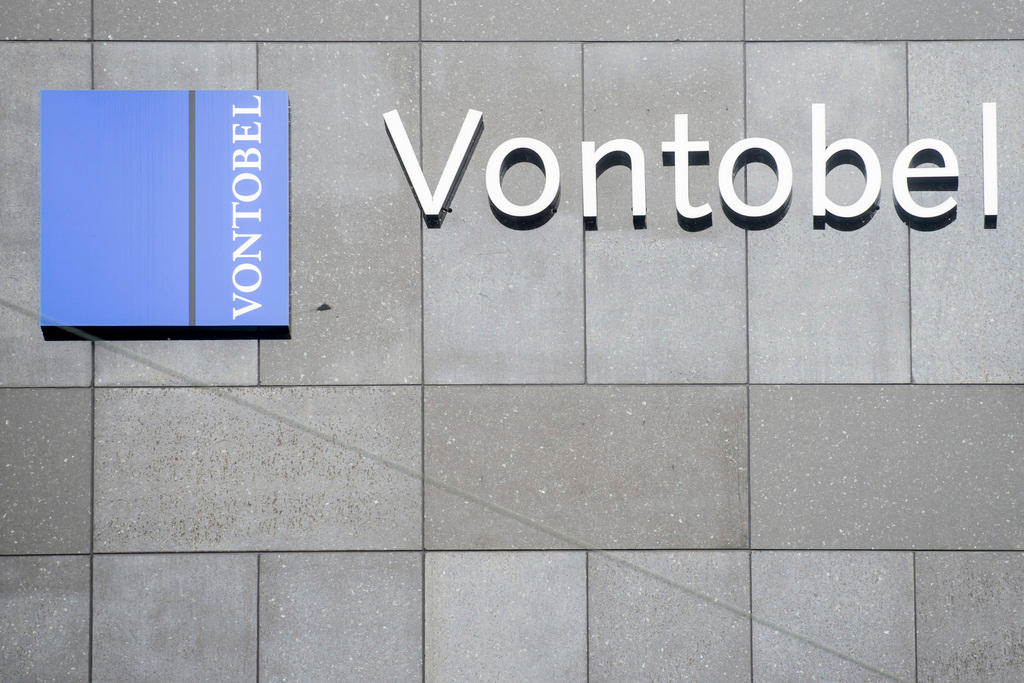‘Crypto Nation’ Switzerland flexes muscles

Switzerland’s blockchain industry has shrugged off a collapse in the price of cryptocurrencies and a fair few scandals to grow into a serious economic player, both domestically and in an international context.
Many of the brightest Swiss blockchain movers and shakers gathered this week at the CV SummitExternal link in Zug, the epicentre of the so-called “Crypto Nation”. swissinfo.ch takes a look at the key takeaways.
Blockchain drops anchor
The blockchain industry which sprang out of the cryptocurrency craze has established firm roots in Switzerland, a country that has built a global reputation as a blockchain hub over the last five years.
Some 750 companies and supporting services (legal, accounting, consulting) are now active in blockchain in Switzerland, supporting 3,300 jobs. Zug’s decision in 2016 to accept bitcoin as payment for some services has netted an estimated CHF30 million ($30 million) in “marketing value” by helping to attract companies and projects to the region, the summit heard.
Ueli Mauer, Swiss Finance Minister and the country’s president for 2019, said that “swift and clear” changes to the regulatory system will enhance Switzerland’s status as an international blockchain hub. The government recently started a consultation process to update financial and corporate regulations to bring them in line with blockchain technological advances.

International flavor
In addition to building a domestic industry of home-grown blockchain players, Switzerland continues to open its arms to foreign imports looking for a friendly base to develop their projects. One of the more recent imports, LamassuExternal link – which manufactures cryptocurrency ATM machines, explained why they chose to incorporate in Switzerland earlier this year.
The US-Israeli team behind the company trawled through a host of countries, including the United States, Portugal, Bulgaria, Malta, Gibraltar and Ireland. But Switzerland was the only country that offered both legal certainty and a bank willing to take their business. Having said that, not every bank in Switzerland is currently so accommodating.
The year visions turn to reality
Big business has cottoned on to the idea that blockchain is not all about cryptocurrencies. Large firms have been experimenting with ways to enhance their processes with blockchain. Concrete use cases are tipped to appear in 2019.
The range of possible applications is huge – from financial transactions, trading and supply chain to funding start-ups and cutting down on paperwork.
Earlier this month, blockimmoExternal link conducted Switzerland’s first real estate transaction on blockchain. The CHF3 million deal is expected to be dwarfed by others in the coming months. The start-up blocksquareExternal link won the CV Summit’s real estate competition as the most promising entrant to this growing space.
Work to be done
The emerging technology continues to trail problems in its wake. As the CV Summit was in full swing, the Swiss financial regulator announced its finding that cryptocurrency firm Envion had misled investors into piling CHF90 million in the failed project.
The summit addressed a recent survey of cryptocurrency exchanges found that 95% of all reported trading was in fact fakedExternal link in order to manipulate the markets.
This shows that some parts of the blockchain sector have yet to shed the Wild West characteristics that have long haunted the industry. “Some people say that cryptocurrencies are the cause of an unprecedented crime wave,” said new Zug mayor Karl KobeltExternal link. “They often forget that evil lies not in technology, but human beings.”
But the meeting also heard that a technology that is too easy to exploit – either through technical flaws or a lack of rules and enforcement – can hardly prosper in the long run.

In compliance with the JTI standards
More: SWI swissinfo.ch certified by the Journalism Trust Initiative





You can find an overview of ongoing debates with our journalists here. Please join us!
If you want to start a conversation about a topic raised in this article or want to report factual errors, email us at english@swissinfo.ch.